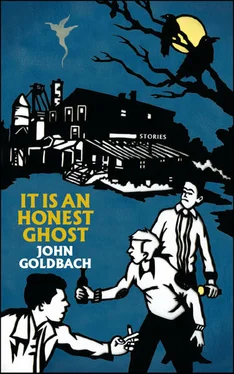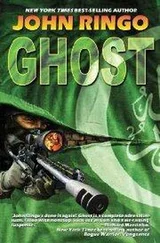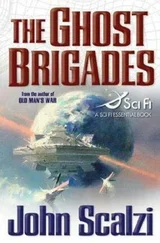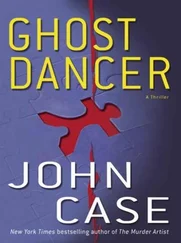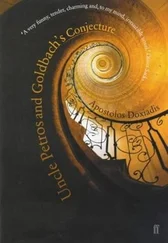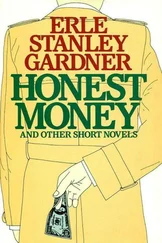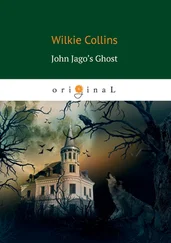‘What happened?’ said Boris.
‘I walked back to the village and eventually my fever went down and I could travel to a hospital and start my antimalarials. In the end I was fine, though I lost, like, twenty pounds, which I didn’t have to lose.’
‘Are you taking anything now?’ I said.
‘No,’ said Ed. ‘I mean, the cure for malaria’s a double-dose of the antimalarials for a cycle.’
I excused myself and walked down to the beach. I sat on a woodpile and attempted to equilibrate. I stared upward at the starred black infinity, the most tremendous view of the heavens I’d ever seen, but I couldn’t shake fear.
Due to my course of medications and vaccinations, I thought, I’d developed an iatrogenic illness. There’s nothing to be afraid of , I thought. ‘There’s nothing to be afraid of,’ I said.
Standing, I decided to walk down the beach, with my head skyward. The sky was dark, black, studded with bright stars, and the sky’s arch seemed more prevalent here than anywhere else in the world, concave like the Cinesphere I visited as a child at Toronto’s Ontario Place, the planetarium’s show projected on the curved screen. And I kept walking down the beach, thinking, gazing up at the stars, but then I heard rustling and a woman and a man, I thought, and I thought I saw the beast with two backs, so I turned around.
The starry water sparkled up the beach reflecting starlight.
I stood at the edge of the water, looking up, letting the tide lap up against my shoes, pulling me, gently, into the phosphorescent ocean. I stood transfixed by the lightshow, the sky and sea twinkling before me.
Laughter startled me out of my spacey reverie. A woman ran past me, in her bra and underwear, and into the flitting luminous water.
I turned around and there were others, dropping trou, running past me and into the water, laughing, screaming, splashing, joyous. Then I saw Boris, throwing off his dashiki, splashing into the phosphorescence in his shorts. He swam out. I heard his disembodied voice from the water say, ‘John, come on in! It’s wonderful!’
‘Maybe in a minute,’ I lamely said and I heard some calls of encouragement and some groans. I turned around and walked back up to the village.
At the bar, I ordered a bottle of water. I walked around the premises, breathing deeply, trying to let all the beauty pull me out of my own head. But it was difficult — I wasn’t the master of my own house. Something had infected my brain.
Beach boys danced by the fire dressed up as female belly dancers, their faces veiled, their muscular midriffs exposed. People watched and smiled, their faces contorting in the torchlight and firelight. One beach boy, dressed up, started spinning fire, a poi performance, making wild fiery geometrical shapes in the air.
A crowd gathered.
Things seemed eerie and the light and shadows were doing strange things as the beach boy, in sheer fabrics, spun the fire. If Banquo’s ghost had appeared I wouldn’t have been surprised.
Elizabeth, the Esquire writer, jumped into the centre of the crowd and took the fire from a veiled beach boy dancing in a dress and started spinning the blazing fuel-soaked wicks like a poi pro. Fiery flowers glowed in the air.
Kenneth came up beside me and said, ‘Are you having fun? You’re looking a little dewy,’ he added.
‘Yes,’ I said, ‘but it’s unfair to take advantage of a village full of tourists on antimalarials with hallucinogenic pyrotechnics.’
‘You have a way with words, man,’ he said.
But I was dead serious.
‘Come sit with us and have a drink,’ said Kenneth, leading me to a fireside picnic table.
I sat down with Kenneth and a friend of his, Ciku, and Osama Goldberg, who was telling stories and had Ciku in stitches. Kenneth introduced me.
‘I remember you from last night,’ said Osama. ‘How’s it going, man? Are you enjoying Lamu?’
‘I am, thank you,’ I said.
Boris walked up from the beach and joined us, his hair wet from the ocean, a sense of salty vitality about him.
‘Do you ever miss drinking?’ Ciku asked Osama as she sipped punch.
‘No, I had my days of devilry,’ said Osama. ‘But those days are over.’
I looked under the picnic table at his feet but they weren’t cloven, though his big toe was separated from the rest of the toes in his flip-flop sandals.
‘I’m a father now,’ said Osama. ‘Religion’s good for a family man.’
‘How many children do you have?’ said Ciku.
‘Two daughters. One daughter who’s fourteen, Maira, with one of my wives. And with my other wife I have another daughter, Aisha, who’s ten. She just turned ten.’
Everyone nodded politely, though I think we were all surprised that he had two wives. And I was afraid I betrayed my surprise.
We got on to politics and the Bush administration.
‘When I look at Bush and Cheney,’ said Osama, ‘I know I made the right decision moving to Lamu and converting to Islam. Those two are the worst terrorists on earth.’
No one said anything, though there was no love for Bush et al. at the table.
Osama said, ‘U.S. involvement in Iraq has been a disaster. Also, their backing of Israel.’
And his eyes shifted toward me, narrowing, sharp blue.
‘I’ve never been,’ I said, my voice breaking. ‘To Israel, that is.’
Osama’s neck snapped back in the direction of Boris, Ciku and Kenneth and he once again seemed jovial.
I couldn’t shake the feeling that Osama Goldberg had anti-Semitic feelings toward me, though not Boris, perhaps because he’s a Russian Jew, I thought, a priori not subjected to a Jewish education but certainly persecution for being a Jew. Osama liked Boris, it was obvious. But it was equally obvious that he despised me, or so I thought. And my bones were chilled and I shook a little, though nobody seemed to notice. It was dark but we sat under the universe, by the fire, and the universe was on display, a starlit sky, forever, never stopping, so many stars that when I moved quickly, while looking up at the sky, there was no gap between the stars, the light was one, one blur but one.
When he looked at me I could tell Osama Goldberg didn’t only see a non-Muslim man-boy but a lousy Jew, a disaffected diaspora Jew, who barely knows a word of Hebrew, basically memorizing his Torah and haftarah portions for his Bar Mitzvah day, forgetting everything, immediately thereafter, his brain as inconstant as an Etch A Sketch, that he’d studied with his rabbi, who put so much time and energy into the boy, only for him to end up an irreligious piece of shit. An effete Jew, a useless Jew, bookish without utility, now on the east coast of Africa briefly, only to leave no impact on this land of limitless and varied cultures, a land that wants no truck with this spectral embodiment of nothingness.
Osama’s eyes said so much — slits, pinched tightly, though emitting so much sharp light, like the crescent moon above us.
Before travelling, I’d read David Mamet’s latest book, The Wicked Son: Anti-Semitism, Self-Hatred, and the Jews , and I think it gave me a complex about not being Jewish enough — that is to say, Mamet’s bullying of Jews not interested in regularly attending shul did its job, and I hated myself sufficiently for being lost, a Jew without Judaism. I needed to commit to something, I thought, a religion. I needed to be more like Osama Goldberg, I thought. No one likes an unaligned assimilationist like me.
‘Excuse me,’ I said, abruptly standing up.
Kenneth raised an eyebrow and stared.
‘Sorry,’ I said. ‘I just have to go to the washroom.’
I went off in some brush and urinated and, for the billionth time, tried to pull myself together.
Читать дальше
